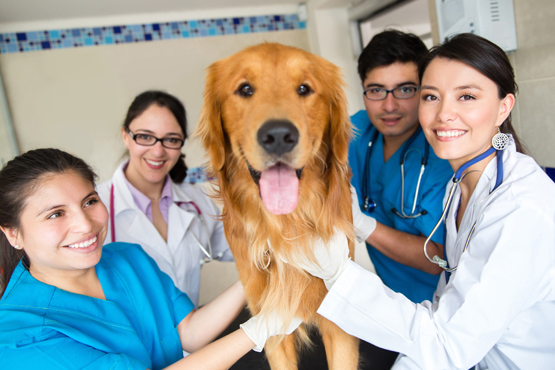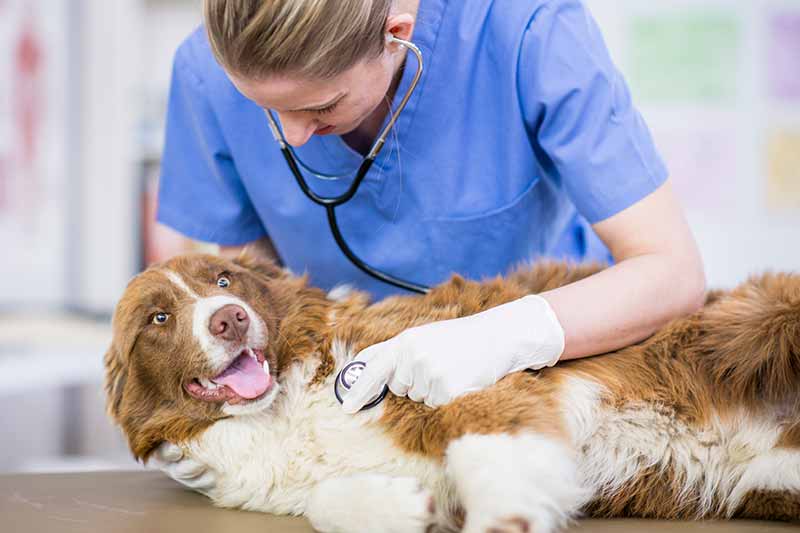New developments in Pet Cancer Surgery procedures
Understanding the Role of a Veterinary Oncologist in Your Family pet's Cancer Treatment
A vet oncologist focuses on dealing with and identifying cancer in animals. Their knowledge is vital for developing personalized treatment strategies that deal with the one-of-a-kind requirements of each pet. Early diagnosis can substantially affect end results, making their role a lot more important. Understanding the various treatment alternatives and just how these specialists team up with primary veterinarians is necessary. What techniques do they employ to boost your pet's lifestyle during this tough time?

What Is a Veterinary Oncologist?
A veterinary oncologist is a specific vet that focuses on treating and detecting cancer in family pets. These specialists possess innovative training in both veterinary medicine and oncology, allowing them to recognize the complexities of cancerous diseases in animals. Their proficiency permits them to execute a variety of diagnostic treatments, including imaging methods and research laboratory examinations, to precisely recognize various kinds of cancers in pet dogs.
In enhancement to medical diagnosis, veterinary oncologists establish tailored treatment plans, which might consist of surgical procedure, chemotherapy, radiation treatment, or palliative treatment. They function carefully with pet dog owners to describe treatment options and prospective outcomes, guaranteeing that households make informed choices concerning their pet dogs' care. Additionally, vet oncologists typically team up with various other general specialists and veterinary specialists, producing a complete strategy to pet health and wellness. By concentrating on cancer cells treatment, they play an essential role in improving the lifestyle for pet dogs identified with malignancies.
The Relevance of Early Medical Diagnosis and Therapy
Early diagnosis and therapy of cancer cells in animals greatly enhance the opportunities of effective outcomes and improved high quality of life. Vet oncologists can implement targeted interventions that may slow disease development and alleviate signs and symptoms when cancer is recognized in its early phases. This proactive technique permits better administration of the condition, potentially leading to longer survival times and improved convenience for the family pet.
In addition, early discovery typically suggests that treatment choices may be less intrusive and extra efficient, reducing the overall problem on both the pet dog and its owner. Regular veterinary examinations and awareness of refined behavioral adjustments are necessary, as they can facilitate prompt medical diagnoses. Proprietors should remain attentive and consult their vet at the first indication of issue. Board Certified Veterinary Oncologist. Eventually, a very early medical diagnosis empowers pet dog owners to make educated choices regarding their pet dog's treatment, substantially impacting the overall journey through cancer administration
Treatment Options Provided by Vet Oncologists
When encountered with a cancer diagnosis, animal owners can check out a selection of therapy options offered by vet oncologists that are customized to the certain needs of their animals. These specialists generally provide a mix of surgical treatment, radiation treatment, radiation treatment, and immunotherapy. Surgical intervention might intend to eliminate tumors or affected tissues, while radiation treatment makes use of medications to kill and target cancer cells, typically provided in cycles.
Radiation treatment focuses on utilizing high-energy rays to reduce tumors and alleviate discomfort. Immunotherapy, a much more current development, uses the pet dog's immune system to combat cancer better. Extra encouraging therapies, such as discomfort administration, dietary assistance, and palliative treatment, are likewise crucial parts of a comprehensive treatment strategy. By reviewing each situation independently, veterinary oncologists assure that the picked therapy aligns with the family pet's overall health and cancer kind, making best use of the opportunities of a positive result.
The Collaborative Approach: Collaborating With Your Key Veterinarian
Partnership between vet oncologists and primary vets is essential for offering considerable treatment to animals identified with cancer cells. This collaboration guarantees a detailed strategy to therapy, integrating the specialized understanding of oncologists with the recurring care offered by primary veterinarians. With each other, they evaluate the pet dog's wellness, establish individualized treatment plans, and monitor the pet's progress throughout the cancer cells trip.
Primary veterinarians frequently work as the initial factor of get in touch with, determining prospective indicators of cancer cells and referring patients to oncologists for specialized diagnostics and treatment alternatives. Complying with the oncologist's recommendations, the primary veterinarian plays a vital duty in taking care of the pet's general health, consisting of discomfort management and supportive care.
Efficient interaction between these experts cultivates a unified approach, permitting prompt interventions and changes to treatment as needed. This collective method ultimately improves the high quality of treatment and support for animals and their owners during a challenging time.


Supporting Your Family Pet Via Cancer Treatment
Supporting a pet dog with cancer cells care needs a comprehensive understanding of the physical and psychological obstacles dealt with by both the pet and its proprietor. Caretakers should listen to the pet's altering needs, which may include managing discomfort, changing diet plans, and checking negative effects from therapies. Offering a comfy, worry-free setting is important for the pet dog's health.
Psychological support is similarly important; owners should seek to continue to be favorable and engaged while recognizing their own sensations of stress and anxiety and despair. Creating an assistance network, including veterinarians, family, and good friends, can ease some problems.
Furthermore, pet owners ought to enlighten themselves regarding the specific sort of cancer and therapy options navigate to these guys readily available, fostering informed discussions with vet oncologists. Ultimately, a caring technique, incorporated with aggressive treatment and support, can improve the family pet's high quality of life throughout see this page this difficult trip.
Frequently Asked Inquiries
Exactly how Do I Select the Right Vet Oncologist for My Family pet?
Choosing the appropriate vet oncologist includes looking into credentials, looking for suggestions, evaluating experience with details cancers cells, assessing communication designs, and visiting clinics to assure a comfortable atmosphere for both the family pet and owner during therapy.
What Should I Expect Throughout the First Visit?
Throughout the very first appointment, the pet proprietor can expect a thorough evaluation, conversation of case history, diagnostic tests, and a therapy plan outline. The veterinarian will certainly resolve issues and give guidance for ongoing treatment.
Exist Any Kind Of Costs Connected With a Veterinary Oncologist's Providers?
Expenses connected with a veterinary oncologist's services can vary greatly based upon area, treatment intricacy, and called for diagnostics. Veterinary Oncologist. Pet proprietors must expect costs for appointments, tests, and potential ongoing treatment plans tailored to their pets' demands

Can My Pet Dog Still Obtain Regular Vet Treatment While Seeing an Oncologist?
Pet dogs can get normal veterinary treatment while seeing an oncologist. Coordinating treatments warranties complete wellness management. Routine check-ups enhance specialized cancer cells treatment, enabling alternative monitoring of the pet dog's overall wellness and addressing various other health and wellness concerns.
What Resources Are Available for Pet Owners Throughout Their Pet's Cancer cells Journey?
Numerous sources are available for animal proprietors maneuvering their family pet's cancer journey, consisting of assistance teams, on-line discussion forums, instructional sites, and monetary support programs, all focused on offering support, emotional support, and sensible details throughout this challenging time.
A veterinary oncologist is a specific veterinarian who concentrates on treating and identifying cancer cells in animals. They function very closely with article animal proprietors to explain treatment alternatives and possible end results, guaranteeing that households make informed decisions concerning their pet dogs' treatment. When encountered with a cancer cells medical diagnosis, pet owners can explore a variety of treatment alternatives supplied by vet oncologists that are customized to the certain needs of their animals. Cooperation between vet oncologists and key veterinarians is important for providing comprehensive treatment to family pets detected with cancer cells. In addition, pet dog proprietors must inform themselves regarding the specific kind of cancer and treatment choices readily available, fostering educated conversations with vet oncologists.